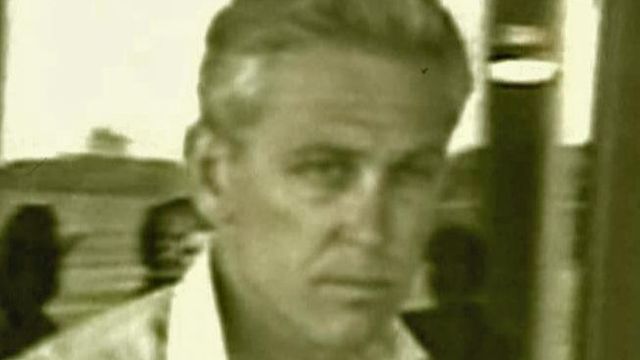MacDonald could wait months to learn if he'll get new trial
Prosecutors and defense attorneys squared off during closing arguments Tuesday at a hearing for Jeffrey MacDonald, who was convicted of killing his pregnant wife and two daughters at their Fort Bragg home in 1970 and is seeking a new trial.
Posted — UpdatedU.S. District Judge James Fox asked that both legal teams get a transcript of the hearing, which began Sept. 17. After that, they have 60 days to submit a written response before Fox will decide whether MacDonald gets another chance in front of a jury.
MacDonald's attorneys delivered their closing arguments first Tuesday and said the jury that convicted their client in 1979 would have found him not guilty if they had heard two things – DNA evidence that wasn't available during the trial and witness testimony that MacDonald says proves his innocence.
Three unknown hairs are at the heart of the DNA evidence the defense wants considered. One hair was found underneath the fingernail of MacDonald's 2-year-old daughter, Kristen, and the second was found on her bedspread. The third hair, a pubic hair, was found under the body of MacDonald's 26-year-old wife, Colette.
The defense argued that Kristen MacDonald's hand wounds showed she tried to defend herself and that the hair under her fingernail must have come from her attacker. The hair on her bed and the hair found under her mother also could have been shed by the attackers, according to the defense.
Prosecutors disagreed with those theories and said experts found that the hair under Kristen MacDonald's fingernail was shed naturally, not forcibly removed, and did not have any blood on it even though the girl's hands were bloodied. It was first discovered in a vial of her fingernail scrapings months after the murders and could have been contaminated from repeated handling, they said.
Prosecutors also questioned whether the girl's wounds were defensive in nature, noting that her hand could have been stabbed as it laid on her chest during the attack.
The hair on Kristen MacDonald's bedspread could have come from anywhere, prosecutors argued, saying that black dog hair was also found on the bed even though the family did not own a dog.
The pubic hair under Colette MacDonald's body was also naturally shed, not forcibly removed, and was found a month after the murders, according to prosecutors, who noted that it could have come from anywhere.
Besides DNA evidence, the defense also honed in on witness testimony, particularly from the attorney of Helena Stoeckley, a known drug addict who claimed off and on that she was in the MacDonald home the night of the murders.
Raleigh defense attorney Jerry Leonard was appointed in 1979 to represent Stoeckley, who died in 1983. Leonard said she once asked him, "What would you do if I told you I was there (in the MacDonald home)?" Leonard said he assured her he would still represent her, whatever the truth was.
Stoeckley later confessed to being a witch in a cult and said a man in her cult had the idea to go to MacDonald's home, according to Leonard. The cult members wanted to confront MacDonald, she said, because they felt his drug treatment program discriminated against heroin users, which they were, Leonard testified.
When they arrived at the house, things got out of control, she said. Stoeckley said she did not take part in the murders, but mentioned that MacDonald's wife was pregnant and that her cult associated newborns with the devil, Leonard said.
Stoeckley's account to her attorney is similar to MacDonald's defense, that he awoke on the sofa in his home as his family was attacked by four hippies – three men and a woman, who was wearing a blond wig and floppy hat, chanting "acid is groovy, kill the pigs."
Defense attorney Gordon Widenhouse called Leonard's testimony "the holy grail" for his client's case and said Stoeckley's confessions were an "extraordinary development."
Prosecutors challenged the reliability of Leonard's memory after so much time had passed.
"Jeffrey MacDonald's never going to admit his guilt. His claims fail. We must end this case and make it final," prosecutor John Bruce said.
They say MacDonald brutally stabbed his family to death with two paring knives and an icepick and beat them with a piece of wood in their apartment at 544 Castle Drive on Feb. 17, 1970.
At the 1979 trial, the state was never able to pinpoint a motive as to why a Princeton-educated doctor without a violent past would snap, kill his family, stage the crime scene and then inflict wounds on himself, making it appear that someone else had committed the murders.
MacDonald – who was 26 at the time of the murders and is now 68, remarried and still in prison – has always maintained his innocence. His wife, Kathryn MacDonald, said Tuesday that he has been "in good spirits."
The case spawned a book and television miniseries, both titled “Fatal Vision,” and continues to generate interest.
• Credits
Copyright 2024 by Capitol Broadcasting Company. All rights reserved. This material may not be published, broadcast, rewritten or redistributed.






